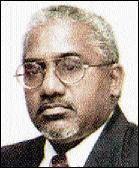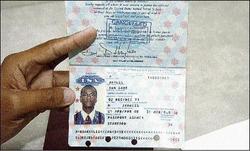
Wilberne Persaud, Financial Gleaner Columnist
How Jamaica treats dual citizenship in choosing legislators is important.
Does the population think so? We don't know. But some people feel it is a major issue.
Readers confirm this.
One says while the column on the matter "attempts to display balanced arguments, [he] cannot agree with the point that dual citizenship suggests, and, in fact, is a predictor of non-commitment. Where is the evidence? Can you cite specific instances or is this just anecdotal in substance?
The argument that an airline ticket affords an escape route belittles the integrity of those who have chosen to stay and/or return to make a contribution. Can they run from themselves? It is a fact that politicians who don't have dual citizenship can also 'escape'. So the argument is somewhat disingenuous. Have you considered that by serving in Jamaica, dual-citizenship politicians are displaying more commitment to Jamaica than to their other country of allegiance? Your suggestion has merit. All candidates should declare their status and allow the electorate to decide."
Having the electorate decide is not my suggestion but my lawyer friend's. Here's the response: Nowhere is it implied that dual citizenship "suggests, and in fact is a predictor of, non-commitment".
There is no suggestion of non-commitment. The actual words were: "avoid consequence of such legislation."
No need for evidence
The reference is about participation in making the bed but not being bound to sleep in it. There is no need for evidence, empirical or anecdotal, since no claim is being made. Someone can by mere purchase of an airline ticket, exercise what is a mere possibility. The question is what is possible and people's thoughts on such possibilities.
There is no reference to specific individuals. The specific case is not the issue. Yet you may say, the Financial Gleaner chose to put Member of Parliament Douglas Vaz' picture in the column. The Gleaner deals in news and sells newspapers. The writer has nothing to do with the headline and how the newspaper displays words.
Admittedly this is a difficult issue. Furthermore, you cannot determine a person's morality or allegiance by Act of Parliament. A legalistic position as in: 'the Constitution does not allow it' is not helpful for a definitive solution either.
Another reader raised important questions: "What pressure can the US government, for example, bring to bear on a parliamentarian in Jamaica if that parliamentarian participates in passing legislation that is 'not in the interests of the USA?'"
Suppose the parliament votes to legalise the use and sale of ganja and John Doe votes for that piece of legislation, then has he broken any US laws? Can he be held responsible by the US government for abetting the flow of drugs to the USA? Can that parliamentarian vote for any legislation 'not in the interests of the USA' without fear of repercussions?
For the hypothetical dual citizen Jamaican parliamentarian voting to legalise ganja: Can the United States government consider whether that citizen is acting against its interests? Are there sanctions? Have any US laws been broken? USA does not allow dual citizenship. How can Jamaicans have US citizenship rights as well as Jamaican ones? Do they really?
There are many more issues and possibilities that must be considered if one is to arrive at a definitive solution.
Two extremes
The two extremes are so simple they require no thought whatsoever! Extreme nationalist says: Jamaican citizenship only; extreme internationalist: citizenship is irrelevant. Here's a question: Why can't we leave partisan politics out of big issues? This is a major reason for our continuing poverty.
In addition the column made no attempt to display 'balanced' argument. There is a view too common today that every issue has two sides of equal merit. Often this is not true. We don't look for balance in our stand against murder — our stand is one-sided.
What I did was simply indicate the lines along which both supporters and opponents of the moot might take, indeed do take. If the whole thing is decided on the basis of who will be seated and unseated, then we know we would have created, to put it mildly, a lump of 'bull'.
Pardon me.
This is, indeed, a serious constitutional matter with tremendous implications for our country's governance.
My first reader then responded: "... party politics has trivialised the issue. Jamaica should use the brightest and best talent at its disposal and not place obstacles in the way of progress. We use British law enforcement officers to curb our crime rate. Why can't we use dual citizenship Jamaicans to set public policy and enact legislation?"
He also supports the idea that all candidates should declare their status allowing the electorate to decide.
Finally, my lawyer friend joins in: "Allegiance is not a loyalty that can be readily legislated. Consider, for a moment, those who have sold state secrets for a price. The choice to be loyal or disloyal, comes from a source other than legislative councils can prescribe for - thus, my suggestion of disclosure, and the people dem will decide whether or not dem want dis foreign person or dat Jamaican."

Ian Hayles, People's National Party member of parliament for Western Hanover, shows his cancelled United States of America passport and new Jamaica passport, April 11, 2008. - File
Wading and sifting
There are lots of issues to wade through. I am not sure we have as yet done that wading and tough sifting.
We cannot avoid the rules set down by our Constitution. It is the fundamental law that governs us. We do, however, have the obligation to consider its impact. Is the Constitution achieving the best that is possible for Jamaica? Is it all cast in stone? Can we arrive at a non-politically partisan consensus on these matters?
wilbe65@yahoo.com

